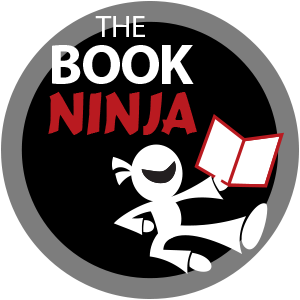Your potential to get negative reviews increases with each new book you publish. While the fact is you can’t please everyone, as people will see holes and flaws in your information, you may also get a pure nasty reviewer who for some unknown reason just hates your book… or even hates you. Cyber bullies exist, “trolls” hang out on forums only to stir up trouble, and these types of people don’t just go away.
If you were bullied in school, your parents may have told you to “just ignore them and they’ll leave you alone.” Well, that doesn’t always work. Bullies will push until they get a reaction, yes, and no reaction is still a reaction. Sometimes no reaction can be worse, as if you don’t take action, the bully will push harder, which can lead to physical harm. My karate instructor recently confirmed this: the best thing to do is defend yourself, not allow yourself to be bullied and just “ignore” the bully… and oh yeah, bullies? Beware… I now know some ninja moves. 😉
The same is true in the world of book reviews, as I found true with one of my e-books, Author’s Quick Guide to Making Money with Your 99-Cent Kindle Book. In this case, a bully found an issue with the phrase “99-Cent Kindle Book” in my book’s title, and my e-book costing more than 99 cents. He left a nasty review and told me to go “eat my own dog food.” So how should you handle negative—or just plain nasty—reviews?
Negative Reviews
Many negative reviews come from people who aren’t in your target audience, so they don’t “get” your book. These are the ones you can ignore. They’re not bullies, they’re just readers with some buyer’s remorse. (Read Author’s Quick Guide to Finding Your Target Market to learn how you can decrease the chances your book will reach people outside your desired audience.) Others may leave negative reviews about the formatting of your Kindle book, typos, or bad writing. If that’s the case, look at the reviews, ask the reviewer to cite where they saw it (some are happy to let you know where the typos are), and then fix it.
If there are typos or major grammatical errors in your book, hire a professional editor and upload a new revised copy. If your audience wants deeper information from you, expand your book’s content or write another short book to answer those specific questions.
If your formatting on your e-book is bad, hire a professional hand-coding e-book programmer to fix the errors. After you upload a new version of your e-book, contact Amazon and ask them to notify everyone who purchased your book that there’s a new version available.
Read this post over at Nicole Dean’s Expert Briefs for more ways to handle negative reviews.
The bottom line with negative reviews is to listen to your audience and when possible give them what they want. If it’s within your power to make your book—and your reputation—appear better to the world, do it. And don’t let a few negative reviews ruin your day.
Nasty Reviews
While negative reviews fall under the realm of constructive criticism, some reviews are just plain nasty. While I welcome three- and four-star reviews with suggestions on how I could make the book better for my audience, one-star reviews saying nothing but they don’t like the price of my book worded in a nasty way are signs of bullying. Here are the steps I took to handle this specific situation:
Step 1: Contact your posse. As you write and publish good, solid content, you’ll start to gain a following of readers and fans. Contact them when you have an unwarranted nasty reviewer attack you and/or your book, and ask them to report that review to Amazon. Amazon does not read every review before posting it, and they do have specific rules that reviews must be reviews of the product, not just attacks about the reviewer not liking the price or the title. If they get enough reports, Amazon will contact the reviewer and recommend that they revise their review to meet their guidelines, or it will be taken down.
In my case, my posse not only reported this bully, but they also commented on his review and tried to help him understand why I priced my book the way I did. I must say it was encouraging to read those comments and be uplifted that I’m not just crazy, and that this really was a bully who had no business deflating my Amazon review rankings.
Step 2: Kill them with kindness. After my posse got behind me for a couple days, and Amazon did not remove the review (the reviewer revised it explaining more about why he thought the price of my book was stupid, and I didn’t bother to re-report it) I chose to send a comment response to this reviewer and speak up. Thanks to one member of my posse (shoutout to Bigi!) who pointed out all the positive things that resulted thanks to this nasty reviewer, I listed those things for him and thanked him.
I let him know that thanks to his review, others were encouraged to post higher-ranking reviews of my book, drowning out his one-star review. I told him I was encouraged by the people who were supporting me, and thanks to him I now realize just how much support I have. I then told him without his nasty review, this would not have happened as quickly, so thanks for that.
Less than two hours later his review was gone.
Why Should You Care?
While I agree in some cases it’s best to simply ignore the negative reviews, and that you should never take reviews personally and infuse them with negative energy (which will totally ruin your day and do nothing to the reviewer), I do feel you should care to do something about negative reviews, including improving your book, and report the nasty reviews that are not reviews at all but attacks on you and your book. Amazon ranks books in their search results heavily based on the number and quality of reviews you get, so it’s important to keep a healthy balance of three- to five-star reviews.
Speak up! How have you handled negative reviews? Let me know in the comments below!


[…] Note: There’s a difference between a critical review and a nasty review from someone who just wants to be a troll. Click here to read my article about how to handle those nasty reviewers. […]
ROFL about the outcome with that troublemaker.
So far, I have only had one 1-star review of my non-fiction book on the second coming of Jesus, which may or may not have been written by a bully. He stated that books by two other authors on the same subject and position were a lot better (which names he could have quickly gotten by reading the first pages of the free sample). And he accused me of a lot of poor grammar.
I responded by thanking him for reading and reviewing my book, even though he didn’t like it. I briefly explained that my approach to the topic was completely different from those two authors. I did not address the grammar content at all, figuring that potential readers can read the generous free sample and decide for themselves.
My book is nonfiction for students of English, not an exciting topic that inspires reviews. I got one three-star review that nicely suggested some improvements, and I emailed him that I would definitely do them. Two 5-star reviews from a couple of my students were never posted. This upsets me because the stars do affect potential buyers’ likelihood of taking the book seriously. Any suggestions?
My only suggestion is to ask your students to re-submit reviews. It seems Amazon is having issues with their system and not all reviews are getting posted. Also encourage your students to leave honest feedback. I personally don’t like getting all 5-star reviews. I’d prefer an honest 3- or 4-star review to 5 stars just because my clients love me. 🙂 Having more variety with stars on a review will help the Amazon database system see it’s a legitimate review.
Nice post, KE. I usually ignore the negative reviews, unless they’re factually wrong. I always acknowledge the right of the reviewer to write what s/he wishes, but will enlist my posse as you recommend. An ex-client of mine took me to task on The Next Wave of Technologies when she didn’t read the book. My FB friends crushed her. She didn’t take the review down, but the message was received.